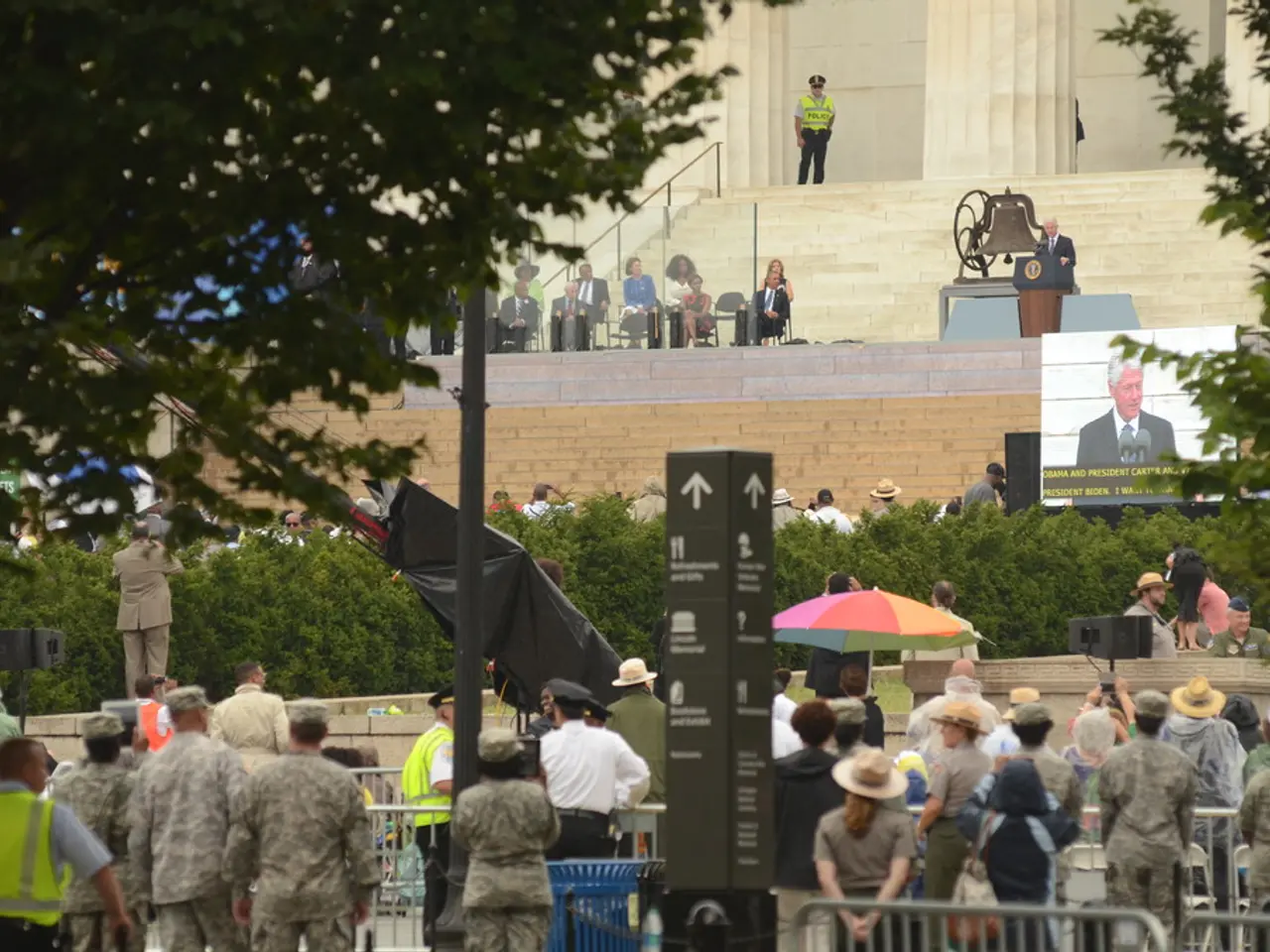Get the Latest from the Sun's Opinion Section
- Editorials – Our take
- Columnists – Local and syndicated writers
- Letters to the Editor – Readers' opinions
- Pen a letter to the Editor
Trump's assault against Latinos hits a fresh low point
The U.S. has more than 65 million Latinos, with over 20% making California their home. For over a century, Latinos were absent from California's U.S. Senate seats.
Senator Alex Padilla bucked this trend in 2022, taking 61.1% of the vote – the highest win among all statewide candidates, including Gov. Gavin Newsom. In the midst of the Trump administration's most extensive immigration raids yet, Padilla faced an unprecedented incident at a Department of Homeland Security press conference in his hometown, Los Angeles. He was physically removed for challenging immigration enforcement practices. Many Latinos view this as representative of a widespread grievance: being excluded from conversations affecting them, their families, and their futures.
Trump's immigration tactics are directly impacting Latinos, even though immigration is a pressing concern in every city and state. In Los Angeles, these raids are specifically targeting Latino-majority neighborhoods, shifting from data-driven enforcement efforts to racial profiling in areas like schools, car washes, and church parking lots.
This month has seen Los Angeles become a hotbed for the Trump administration's excessive power play. After denying entry to four U.S. House representatives at the Los Angeles federal detention center and three to the Immigration and Customs Enforcement processing center in Adelanto, Senator Padilla was silenced and forcefully removed from a job-related meeting.
While there are concerns regarding immigration policies and human rights issues, Padilla's mistreatment highlights a unique threat: a test for the control of America's democratic republic.
The U.S. has three co-equal branches – legislative, executive, judiciary. This system of separation of powers and checks and balances was designed to prevent tyranny and foster a balanced government. The Trump administration has upended this balance, circumventing Congress' budgetary actions, defying judicial orders, obstructing public officials from their duties, and undermining oversight inquiries.
Like immigration enforcement actions, the administration's overreach is racially motivated. Latinos have long expressed feelings of being unheard and left out of crucial discussions. Research shows that Latinos face disproportionate underrepresentation in crucial areas like academia, private enterprise, philanthropy, and the media[1]. Tragically, when capable Latinos, like Padilla, attain positions of power, their authority is often undermined – a pattern that repeats itself, even when Senators like Padilla are forcefully removed from meetings[2].
This month's events pose a new chapter in the denigration of Latino agency and dignity. Representatives have been denied entry to perform their duties, raising questions about the resilience of American democracy and the reemergence of fascism and authoritarianism[3].
One constant throughout: the dehumanization of Latinos and their concerns. Latinos are a diverse group, but the Trump administration seems to treat them as a monolith. From the stalking and apprehension of Latinos in Home Depot parking lots, to targeted attacks on Latino-led charities, to the physical assault of a U.S. Senator, the subjugation of Latinos is now apparent in Los Angeles – a region that fuels the fourth-largest economy globally and is the worldwide epicenter of media and entertainment. The lack of meaningful Latino involvement in setting cultural, societal, and political trends is a cause for concern.
Any discussion on the vulnerability of American democracy, the return of fascism, and the future of the Constitution is inherently an examination of Latinos – and all Americans. So long as Latinos remain silenced and marginalized in conversations about the future of this nation, its future remains uncertain. The challenge is now our common task[4].
Sonja Diaz is a civil rights attorney and co-founder of the Latina Futures 2050 Lab and UCLA Latino Policy & Politics Institute. She penned this for the Los Angeles Times.
[1] Top Five Industries Least Diverse After Graduation[2] Latino Senators Face Resistance at All Levels of Government[3] The Assault on Democracy[4] The Persistence of White Supremacy in the United States
- The latest news reveals concerns about the Trump administration's impact on the Latino community, particularly in events like immigration raids that specifically target Latino-majority neighborhoods, and the denial of entry to U.S. House representatives in Los Angeles.
- In the realm of politics, Senator Alex Padilla, who was physically removed from a Department of Homeland Security press conference, experienced a unique instance of exclusion, which many Latinos see as representative of a widespread grievance.
- The entertainment industry and media are also under scrutiny, as research indicates a disproportionate underrepresentation of Latinos in key areas such as academia, private enterprise, philanthropy, and the media.
- The events this month raise questions about the resilience of American democracy, the reemergence of fascism and authoritarianism, and the future of the Constitution – issues that are deeply connected to the inclusion and agency of Latinos in policy-and-legislation discussions.






